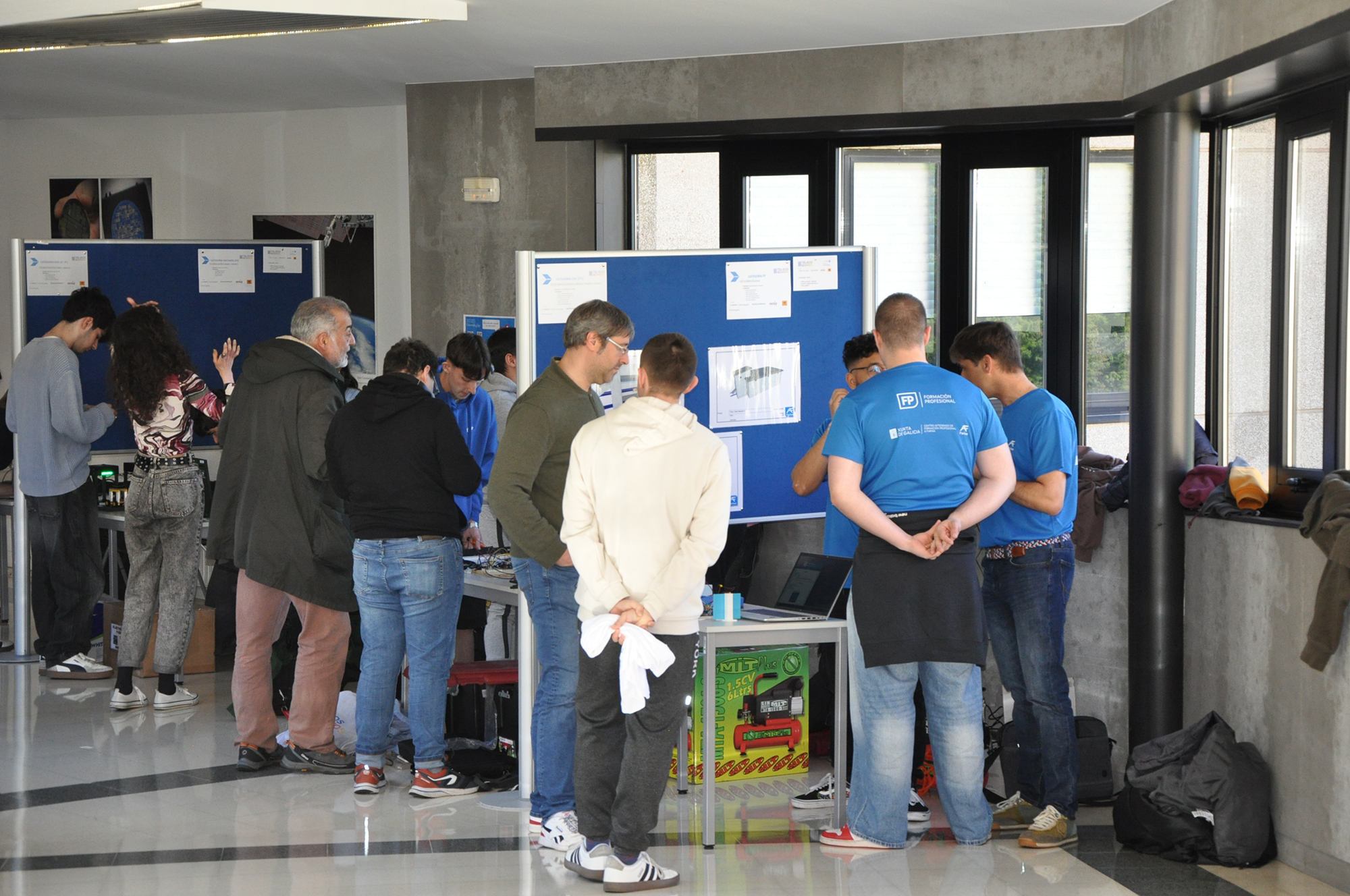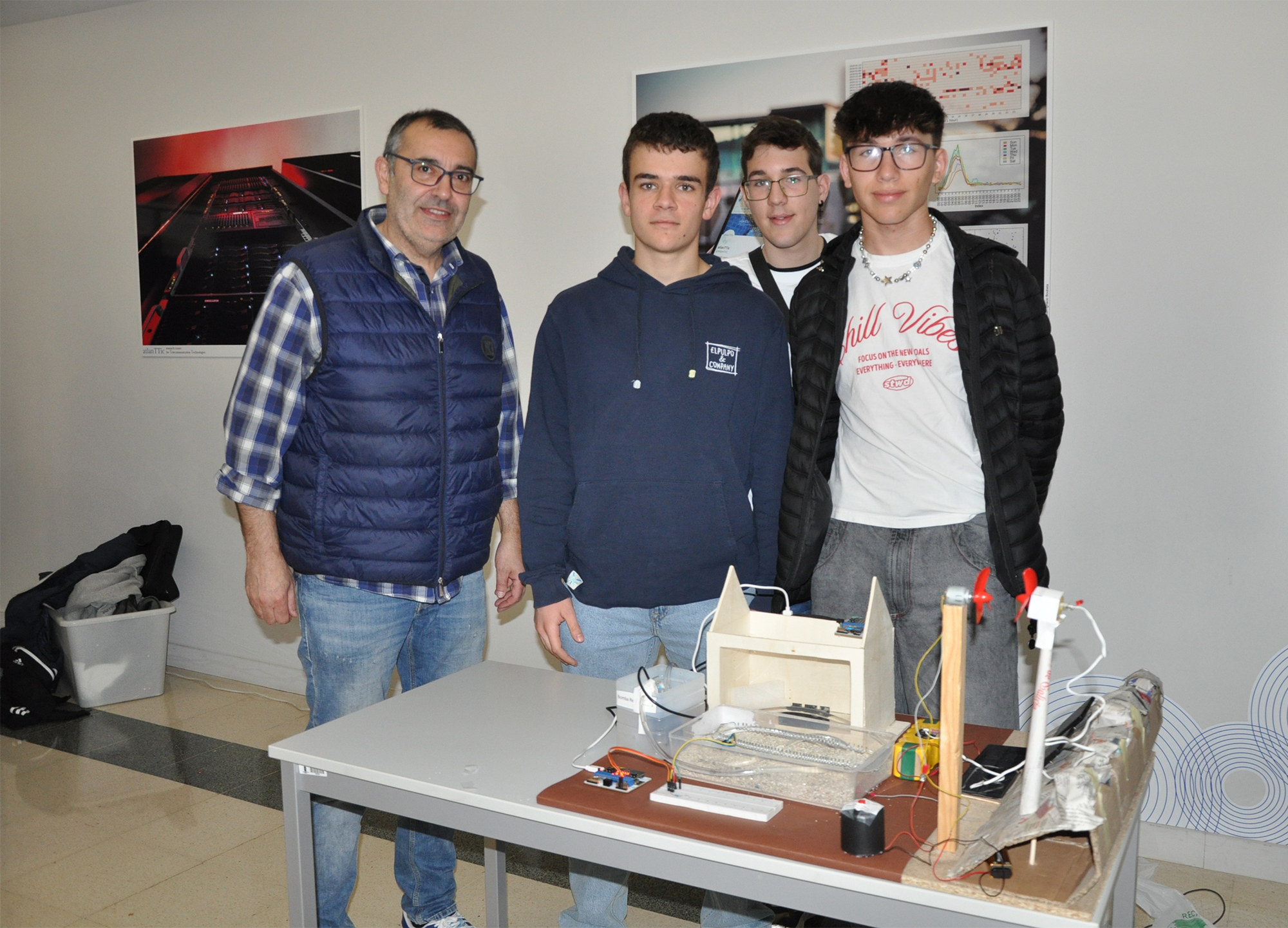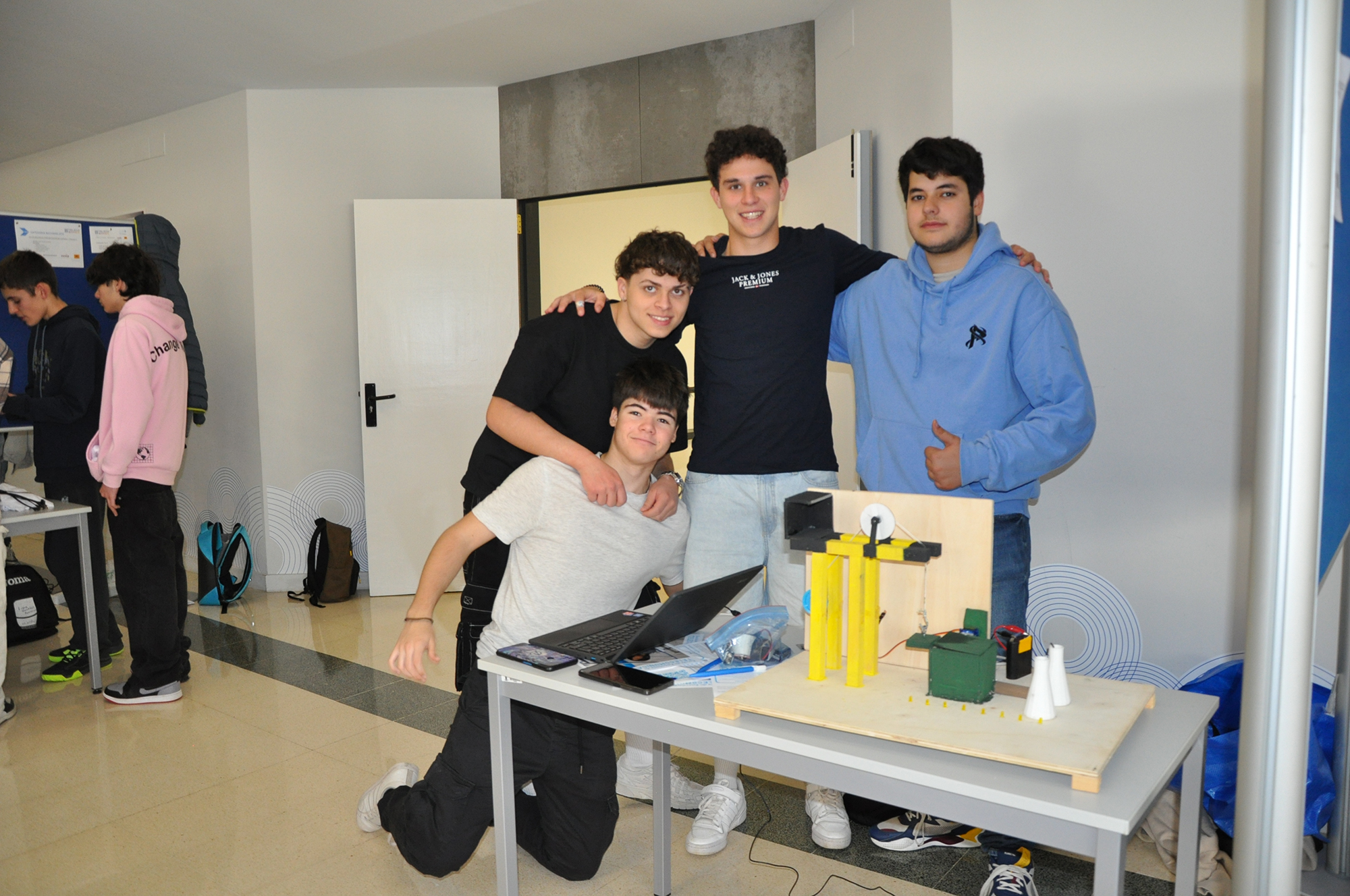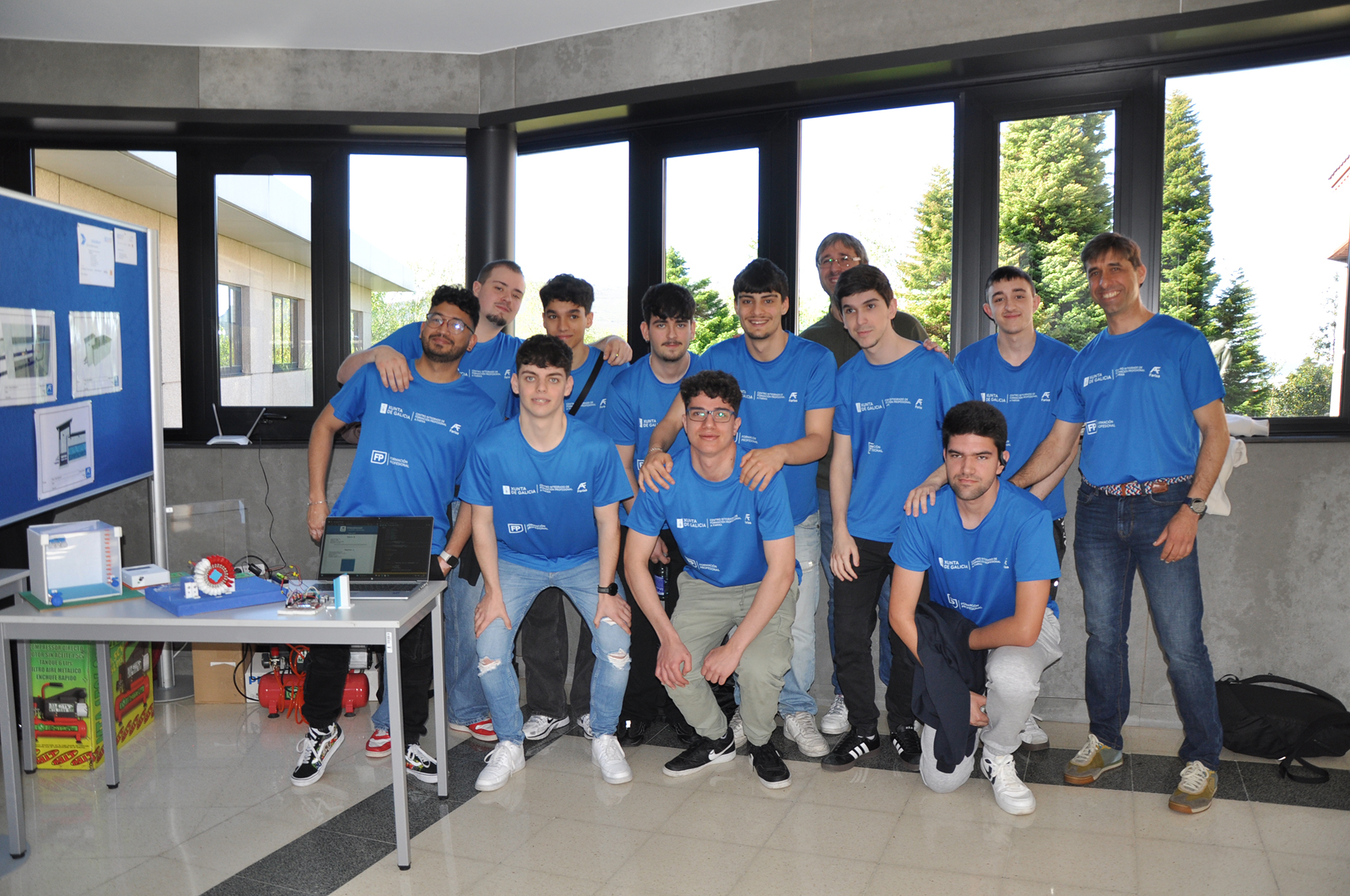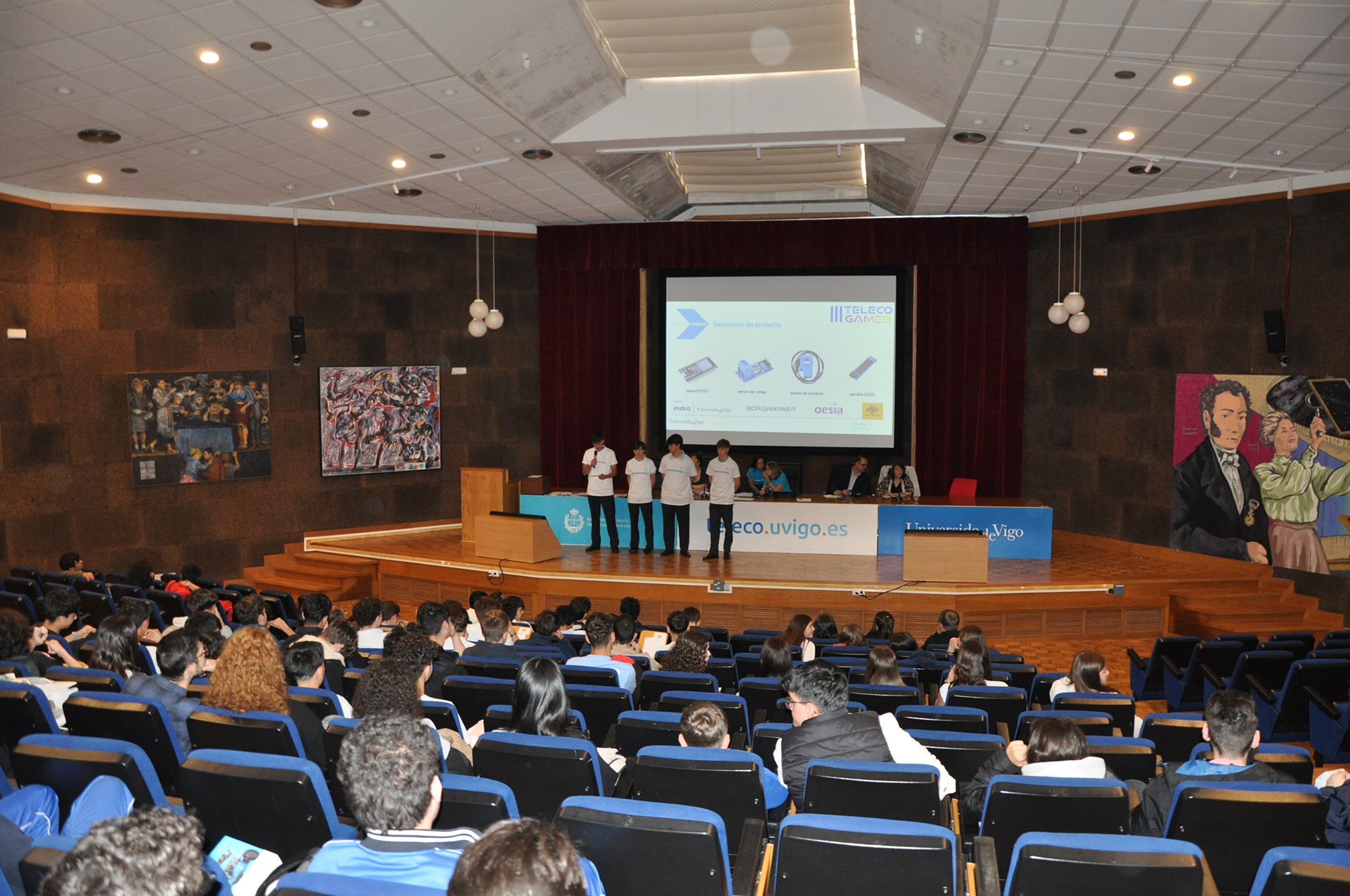Winning teams will represent Galicia in the national final at the end of May
From Sada, Ribadeo, Silleda, Ourense, Cangas… more than 200 secondary school students gathered this Thursday on the Vigo campus for the 3rd National Teleco Olympics, Teleco Games. While the goal was to win a prize to reach the national finals, the event was mostly about showcasing their talent, creativity, and early engineering skills. According to the organizers, the main objective—sparking an interest in telecommunications—was clearly achieved, as shown by the enthusiasm of the participants during their presentations.
A total of 207 students took part: 115 from Secondary Education (ESO), 80 from High School (Bachillerato), and 12 from Vocational Training (FP). Divided into 56 teams, they presented their projects in the central corridor of the School of Telecommunication Engineering and in the auditorium. They did so before an audience that included their peers and representatives from the School and the four sponsoring companies: Indra and Oesía (through their chairs), Televés, and Borgwarner.
A “Very Important” and “Exciting” Day
“They come excited to present the projects they’ve been working on for months, all unique: some more innovative, others more conventional; some very sophisticated—especially those by high school and vocational training students—and others simpler but equally interesting, created by ESO students,” explained Rebeca P. Díaz, Director of the School.
“Today is a very important day for us, as it marks the culmination of a journey that began around this time last year,” she noted, also highlighting the key role of corporate sponsors. “They fund the €1,300 in prizes for each of the four categories and also cover the cost of the kits sent to schools. The financial cost is significant, and without them, this event wouldn’t be possible,” she emphasized. “We hope this year’s teams do as well as last year’s, when Galician teams reached the final podium in all four categories.”
ICT Projects for Affordable and Clean Energy
Among the new features of this third edition is the addition of a new category: 1st–2nd years of ESO, aimed at fostering interest in technology at an earlier age. This year’s projects focused on Sustainable Development Goal 7 (Affordable and Clean Energy) and required the use of some form of communication technology (e.g., WiFi, Bluetooth).
Projects covered topics such as solar energy, water control systems, biomass, electric cars, and even sand batteries—demonstrating, with varying levels of sophistication, how telecommunications can help ensure access to affordable, safe, sustainable, and modern energy.
At each station, teams proudly presented their prototypes. Students from IES A Farixa in Ourense presented “Ecocontrol,” a device that measures water tank parameters sustainably—powered by a turbine inside the tank. CIFP Ferrolterra showcased an autonomous water pump system for ships that activates automatically when it detects excess water, sending a signal to a microcontroller to activate the pump until levels return to normal.
Aiming for the National Podium in Late May
The top projects received cash prizes totaling €5,200, provided by the four sponsor companies. In addition, they will go on to represent Galicia in the national final, which will take place online:
- May 21–23 for high school teams
- May 26–27 for vocational training centers
- May 28–30 for ESO students
Good luck to all the teams heading for the national stage!
Source: DUVI, Faro de Vigo, Código Cero, TeleMariñas, ValMiñorTV.


